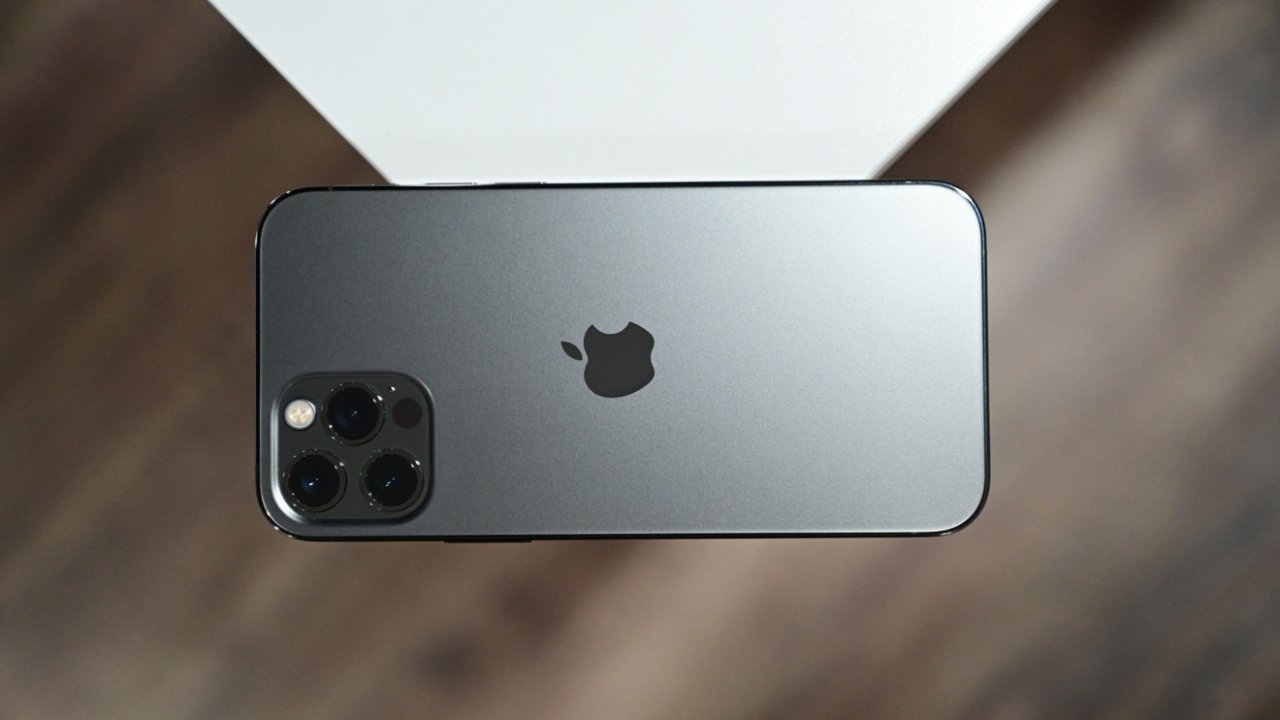As it said it would, Apple has developed an update to turn down the strength of the radio on the cellular modem on the iPhone 12, and has now submitted it to the French government for analysis.
Just under the two-week deadline that France's radiation watchdog, Agence nationale des frequences (ANFR), set Apple has submitted a promised fix for claimed too-high radio frequency emissions from the iPhone 12. The phone was found to exceed legal limits for RF exposure, in a round of the AFNR retesting of 141 mobile phone models.
Just the core iPhone 12 model is impacted by the French action. It's still not yet clear if any other manufacturers are impacted by the new round of testing.
Apple has said that it has provided France's radiation watchdog, Agence nationale des frequences (ANFR), with documentation from multiple international regulatory agencies. All of the data provided shows that Apple is in compliance with limits, everywhere in the world.
The initial testing by Apple, and the retesting by France should have been done simulating a worst-case scenario, where the iPhone is seeking a RF tower in an area of poor signal. It's nearly certain that the update will impair cellular reception in low signal areas, but the magnitude of the impact is unclear.
Apple's iPhone 12 is not available directly from the company. It is still available from carriers and second-hand, and until the French government confirms that the update will fix what they see to be a problem, sales remain banned.
Additionally, should the update prove to be enough for the French government, it will also eliminate the possibility of a threatened total recall in the country.
"Apple is expected to respond within two weeks", Jean-Noel Barrot, France's junior minister for the Digital economy said on September 12. "If they fail to do so, I am prepared to order a recall of all iPhones 12 in circulation. The rule is the same for everyone, including the digital giants."
It's not clear how long France will take to assess the submitted fix, nor does there appear to be any detail provided to Reuters about timetables or assessment process.
Radio frequency power versus ionizing radiation
RF radiation is not the same as ionizing radiation generated by decay of radioactive isotopes, and from the sun itself — and the mechanism of damage is different. Ionizing radiation breaks the bonds in cells, where sufficiently high levels of RF radiation can heat tissue and could theoretically cause tissue damage.
While radiation exposure is measured in gray, sieverts, or rem per hour, depending on country, Specific Absorption Rate (SAR) is more universal. SAR is a measure of the rate at which the body absorbs RF energy. A SAR of 1 watt per kilogram would increase the temperature of an insulated slab of tissue by one degree Celsius per hour of exposure at that wattage, and does not account for the loss of that temperature increase from any other factor.
Unlike the trio of ionizing radiation measurement methods, SAR is a measure of that heat, and not an absolute measure of damage. Generated heat is what can theoretically cause damage from RF exposure, but the measurement — and how it is measured and regulated — is controversial.
The ANFR claims to have found absorption at 5.74 watts per kilogram for its testing on-contact. The EU legal limit for on-contact exposure to a cellphone is 4 watts per kilogram over one gram of ersatz tissue, with no cooling.
ANFR did note, however, that the test at 5 centimeters from the broadcasting element to the ersatz tissue was in compliance with the international regulation of 2 watts per kilogram, which Apple's own testing confirms.
Apple's testing conforms to an international industry standard. As Apple says, during testing, iPhone radios are set to highest transmission possible manually and SAR is evaluated in real time, over time intervals as specified by applicable regulations.
Apple says that its SAR testing is evaluated in positions that simulate uses against the head, with no separation, plus when worn or carried against the torso of the body, with 5mm separation. Various reports have claimed that the testing by France's regulatory agency differed from the rest of the world, but other than a difference in detection equipment manufacturer, it's not clear how.
 Mike Wuerthele
Mike Wuerthele







-m.jpg)






 Wesley Hilliard
Wesley Hilliard
 Malcolm Owen
Malcolm Owen
 Andrew Orr
Andrew Orr
 William Gallagher
William Gallagher
 Sponsored Content
Sponsored Content
 Christine McKee
Christine McKee

 Thomas Sibilly
Thomas Sibilly






6 Comments
Will Apple's software update be applied to all iPhone 12s worldwide, or just iPhone 12s that are geo-located in France (or maybe the EU)?
Interesting to see whether this will come as a forced update in order to ensure compliance.
Next up: France sues Apple because the signal drop from cell towers is faster than it was before. "Physics doesn't matter!"